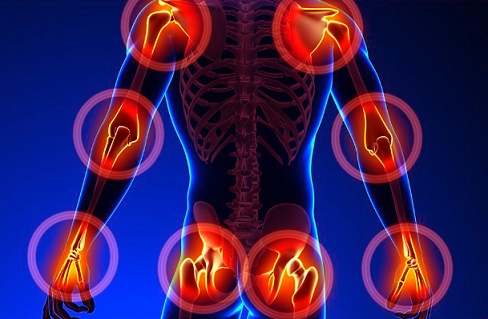Swiss study shows that low-iron diet shows promise in reducing symptoms associated with arthritis
Nikhil Prasad Fact checked by:Thailand Medical News Team Oct 31, 2024 5 months, 2 weeks, 4 days, 7 hours, 51 minutes ago
Medical News: In a new breakthrough, researchers from the Department for Rheumatology and Immunology at the University Hospital Bern, Switzerland, have found that a low-iron diet significantly reduced the severity of arthritis in a mouse model of rheumatoid arthritis (RA). The study offers fresh insights into dietary interventions that may benefit those suffering from inflammatory arthritis.
 Swiss study shows that low-iron diet shows promise in reducing symptoms associated with arthritis
Understanding the Study: Iron’s Role in Inflammation
Swiss study shows that low-iron diet shows promise in reducing symptoms associated with arthritis
Understanding the Study: Iron’s Role in Inflammation
Iron plays a critical role in the body, particularly in oxygen transport, yet its regulation changes during inflammation. With inflammation, iron absorption is typically restricted as the body attempts to limit microbial growth, which relies on iron. In chronic inflammatory conditions like RA, this regulation intensifies, leading to a complex state where inflammation both depletes and requires iron. This
Medical News report explores the hypothesis that limiting dietary iron may reduce inflammation and alleviate arthritis symptoms.
Low-Iron Diet Shows Reduced Arthritis Symptoms in Mice
The research involved male DBA/1 mice, commonly used to study RA, which were divided into groups with either a standard or low-iron diet. Arthritis was induced using a collagen-based technique, a common method for mimicking human arthritis in animal studies. Over the next two weeks, the severity of arthritis was assessed daily using a clinical arthritis score. Notably, the mice on a low-iron diet showed significantly milder symptoms and less severe progression of arthritis compared to those on a regular diet.
A standout finding was the reduction in TIMP-1, a tissue inhibitor of metalloproteinases, which appears to influence inflammation and tissue breakdown in arthritis. Mice on a low-iron diet had markedly lower levels of TIMP-1 than those with standard iron intake, suggesting a potential pathway through which iron impacts inflammation.
Detailed Findings: Immune Response and Blood Health
Interestingly, although arthritis symptoms were reduced, the immune response to collagen, the substance used to induce arthritis, did not differ between the diet groups. Blood analysis further showed that while the low-iron diet reduced red blood cell volume and hemoglobin concentration slightly, it did not cause anemia - a promising sign that iron reduction could be a feasible approach for patients without severe risk of low iron levels.
A low iron diet’s impact on iron regulation did not appear to directly involve iron accumulation in joint tissues. Measurements of Fe2+ and Fe3+ (forms of iron) in joint tissues, as well as indicators of oxidative stress, did not show significant differences between the diet groups. This finding suggests that while systemic iron regulation affects arthritis, its mechanism might be unrelated to local tissue iron or oxidative stress.
Broader Implications for Arthritis and Inflammator
y Diseases
This study’s results are especially significant for patients with chronic inflammatory diseases, where iron supplementation is often considered. The researchers propose that restricting dietary iron could have anti-inflammatory benefits, supporting the body’s natural response to limit iron during inflammation. This finding suggests a shift in clinical approaches toward managing iron levels through diet, rather than iron supplements, which can sometimes exacerbate inflammation.
In light of the link between TIMP-1 levels and inflammation, the study opens a pathway for future research to explore if controlling TIMP-1 could further help mitigate arthritis symptoms.
Conclusions and Future Directions
The study shows for the first time that a non-anemic low-iron diet can potentially reduce arthritis symptoms in a model for human RA. This dietary intervention could offer a safer approach to managing inflammation without the risks associated with low iron levels. While further research is needed to confirm the therapeutic potential of low-iron diets in human arthritis patients, this study highlights the importance of dietary management as part of arthritis care.
For those dealing with arthritis, the implications of this research suggest that managing iron intake could be beneficial, though anyone considering dietary changes should consult with a healthcare provider.
The study findings were published in the peer-reviewed journal: Cells.
https://www.mdpi.com/2073-4409/13/21/1792
For the latest on Arthritis, keep on logging to Thailand
Medical News.
Read Also:
https://www.thailandmedical.news/news/new-research-suggests-n-acetylcysteine-nac-may-help-manage-chronic-pain
https://www.thailandmedical.news/news/new-hope-for-treating-sars-cov-2-virus-induced-osteoarthritis
